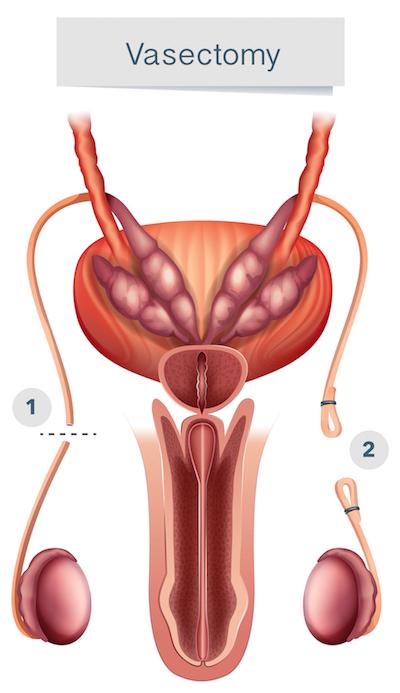
What is a vasectomy?
A vasectomy is a surgery to cut the vas deferens, or the tubes through which a man's sperm travel. After a vasectomy, sperm cannot move out of the testes.
Why is a vasectomy performed?
A vasectomy may be recommended for men who are certain that they wish to prevent future pregnancies. A vasectomy makes a man permanently sterile, or unable to get a woman pregnant.
Vasectomy is a simple, safe and effective method of permanent surgical contraception for men. It is much safer and less expensive than tubal ligation for women. A vasectomy is sometimes called "tying the tubes."
How is a vasectomy done?
A vasectomy is usually done in the surgeon's office under local anesthesia and you can go home right afterward. You will be awake, but you will not feel any pain. A small cut is made in the upper part of the scrotum, and the tubes (vas deferens) are tied off and cut apart. Stitches are used to close the wound.
This surgery does not affect a man's ability to achieve orgasm, ejaculate, or have an erection. There will still be fluid (semen) in the ejaculate, but it will contain no sperm.
Q: What is the success rate of a vasectomy reversal?
A: Studies indicate that following microsurgical vasovasostomy, sperm appears in the semen in approximately 80-95% of men, and approximately 50% of couples subsequently achieve pregnancy. Following microsurgical vasoepididymostomy, sperm appears in the semen in approximately 65% of men and approximately 20% of couples subsequently achieve pregnancy.
Learn more about other birth control methods in our Birth Control Guide!
Read More:
How To Choose A Birth Control Pill
Cervical Cap
Intrauterine Device (IUD)
Vaginal Ring
The Birth Control Patch
